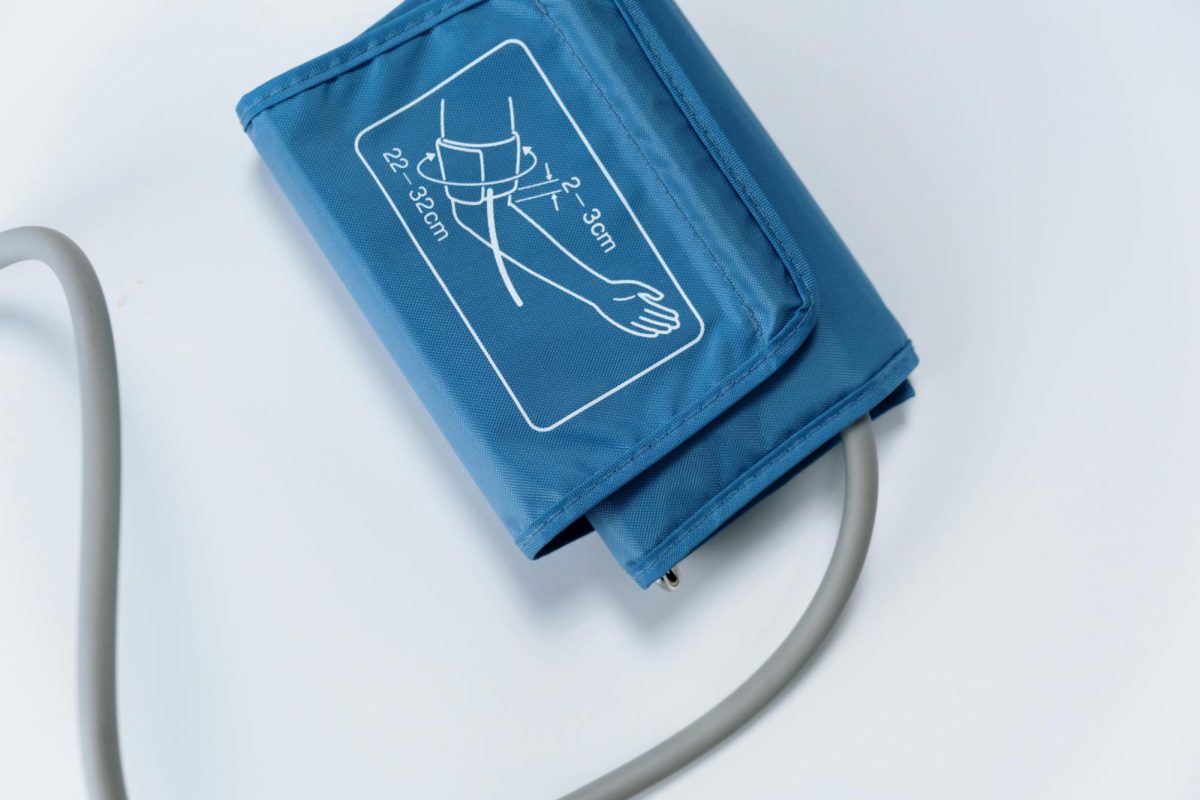Editor’s Note: Last year, Grossmont College joined with five four-year colleges in the greater San Diego area in a joint study project based on Rebecca Skloot’s book, The Immortal Life of Henrietta Lacks. A student essay contest was sponsored as part of that joint study and Grossmont student Sara Birka won second place and $300 for her essay, reprinted below with her permission,
We must not see any person as an abstraction. Instead, we must see in every person a universe with its own secrets, with its own treasures, with its own sources of anguish, and with some measure of triumph.–Elie Wiesel
The book The Immortal Life of Henrietta Lacks written by Rebecca Skloot (2010) tells the story of Henrietta Lacks and her family juxtaposed to the story of the growth and development of her cells for medical research. In the process of telling these two stories, Skloot raises many questions regarding ethics and the medical community. Many of the questions raised by her book relate to vulnerable populations and how some researchers in the medical field take advantage of their susceptibility. The medical research of vulnerable populations, both directly and indirectly, affects many people groups. Also, each of these people groups have their own values, priorities and principles they consider when organizing a research study or when making a decision about allowing a dependent to participate in research. Finally, a solution is presented that could help protect vulnerable populations from abuse at the hands ruthless medical researchers.
Children, prisoners, the elderly, the mentally disabled, and ethnic minorities are examples of vulnerable populations. Vulnerable populations usually have limited education or are unable to give informed consent due to limited mental faculties. In an article written by Horner (1999) titled “Retreat from Nuremberg: can we prevent unethical medical research?” he describes vulnerable populations as groups of people that researchers can easily access. Specifically, children at a school, prisoners incarcerated in a penitentiary, the mentally disabled living at a mental health facility, or the elderly residing at a retirement center.
In Skloot’s (2010) book Skloot and Deborah Lacks discovered a vulnerable population during their trip to Crownsville State Hospital. Deborah’s sister Lucile Elsie Pleasant lived there for the last few years of her life. Doctors had Elsie institutionalized at the Crownsville State Hospital after her mother, Henrietta Lacks, became too ill to care for her. The hospital had destroyed most if its patients’ medical records; miraculously, Skloot and Deborah located Elsie’s medical record undamaged, and in its entirety. With great horror, they discovered that the hospital forced Elsie, as well as many other patients to participate in a study for epilepsy called “Pheumoencephalography involved drilling holes into the skulls of research subjects, draining the fluid surrounding their brains, and pumping air or helium into the skull in place of the fluid to allow crisp X-rays of the brain through the skull” (p. 275-76). Researchers abandoned the study in the seventies because it caused permanent brain damage and paralysis. Sadly, the test subjects of this study all had mental disabilities, making it impossible to give informed consent. This rendered them a vulnerable population. The mentally disabled remain, to this day, easy prey for medical researchers who disregard Wiesel’s warning.
In 2004 the U.S. Department of Health and Human Services published a document titled Guidelines for the Conduct of Research Involving Human Subjects at the National Institutes of Health which included The Belmont Report. This publication established the three ethical principles for human research. The first ethical principle “Respect for Persons…requires that subjects give informed consent to participation in research” (p. 4). The second ethical principle “Beneficence requires to protect individuals by maximizing anticipated benefits and minimizing possible harms” (p. 4). The third ethical principle “Justice requires that treat subjects fairly… insure that certain individuals or classes of individuals…are not systematically selected or excluded” (p. 4). Many groups of people have a stake in the research of the mentally disabled, as well as values, priorities, and concerns they evaluate when proposing, allowing, or granting permission for participation in a new research project. Each of these groups of people are affected by, or view, these ethical principles differently.
The first group with a stake in the research of the mentally disabled is the mentally disabled patients. Determining their values and concerns is not easily accomplished. Due to their limited mental facilities, they are unaware, or unable to express their concerns. They would be unable to determine if a proposed research study complies with The Belmont Report’s ethical principles. In most cases, the parents or next of kin are required to make decisions about the beneficence of a research project, including granting informed consent for participation in research studies.
Next, the patients parent(s) or guardian(s) have a stake in the research of the mentally disabled. They will evaluate possible effects the research may have on their dependent’s health. If the study has the potential to affect their dependent’s health negatively, they will not grant permission for their dependent to participate. Also, they will ensure the researchers justly selected their participants. If the guardian(s) feel the researchers have the best intentions for their dependent, they will grant permission for their dependent to participate in the research study.
Further, researchers themselves have social and ethical principles they consider when planning research studies. Sockolne (1997) notes in his article “Ethical, social, and legal issues surrounding studies of susceptible populations and individuals” that “the need to do good has to be balanced against the potential also to cause harm” (p. 1). First, researchers have to consider the beneficence of the study. They will determine if conducting this study will do the greatest good for the greatest number of people. Next, researchers will ask for participants while ensuring they did not single out any one person or group of people. Last, they will request the patient’s guardian(s) sign an informed consent document.
Also, the governing boards and ethics committees are stakeholders in the research of the mentally disabled. First, they will ensure the researchers have secured informed consent from the patient’s guardian(s). Second, these governing bodies will make sure the research project is based on a need and no harm will come to the test subjects. Last, they will ensure the test subjects were not singled out by the researchers, unless the researchers had valid reasons for doing so. If these governing bodies conclude that the researchers have complied with the ethical principles of The Belmont Report and demonstrate they respect the people involved, they will allow the research to take place.
Finally, state officials have a stake in the research of the mentally disabled. Unfortunately, not every mentally disabled patient has a relative available to make decisions about their medical treatment. Many mentally disabled patients, like Elsie, become wards of the state. Making sure researchers adhere to the ethical principles of The Belmont Report may not be the state’s primary concern. State officials may not have any concerns about the beneficence of a research project or the methods used when selecting the participants. In conclusion, a ward of the state may have a greater possibility of becoming a participant in an unethical research project.
A few things need to happen to ensure researchers no longer take advantage of mentally disabled patients and they adhere to the ethical principles of The Belmont Report. First, researchers need to view potential research participants as human beings, not lab rats. Each one unique and special in their own way. Also, remembering Wiesel’s warning will help researchers make better decisions about what research projects to conduct.
Second, the research proposal should be submitted to a committee consisting of a range of members. Horner (1999) describes the make-up of this group in his article as “equally balanced between medically and non medically qualified members” (p. 208). The medically qualified personnel will determine the need for the research study, and the non medically qualified members will ensure the protection of the research subjects’ rights.
Finally, guardians or state officials need to have constant communication with their dependent’s doctors and medical researchers. Researchers and doctors need to constantly update guardians or state officials on the patients’ medical status. Guardians and state officials need to be aware of all medication, therapy and counseling as well as the patients’ status in a medical study. In turn, guardians and state officials need to constantly ask questions and request updates from researchers and doctors who are not as forthcoming with the information.
Through medical research we gain most new medical information. There have been cases in the past involving the unethical research of the mentally disabled; but as long as the governing boards and ethics committees do their job and guardians and state officials stay involved with the studies, it will be harder for unscrupulous researchers to take advantage of this vulnerable population.
*
References
Horner, J. S. (1999). Retreat from Nuremberg: can we prevent unethical medical research?. Public Health (Elsevier), 113(5), 205-210.
Skloot, R. (2010). The Immortal Life of Henrietta Lacks. New York, NY: Crown Publishing Group.
Soskolne, C. L. (1997). Ethical, social, and legal issues surrounding studies of susceptible populations and individuals. Environmental Health Perspectives Supplements, 105837.
U.S. Department of Health and Human Services. (2004). Guidelines for the Conduct of Research Involving Human Subjects at the National Institutes of Health. Washington, DC: Public
























